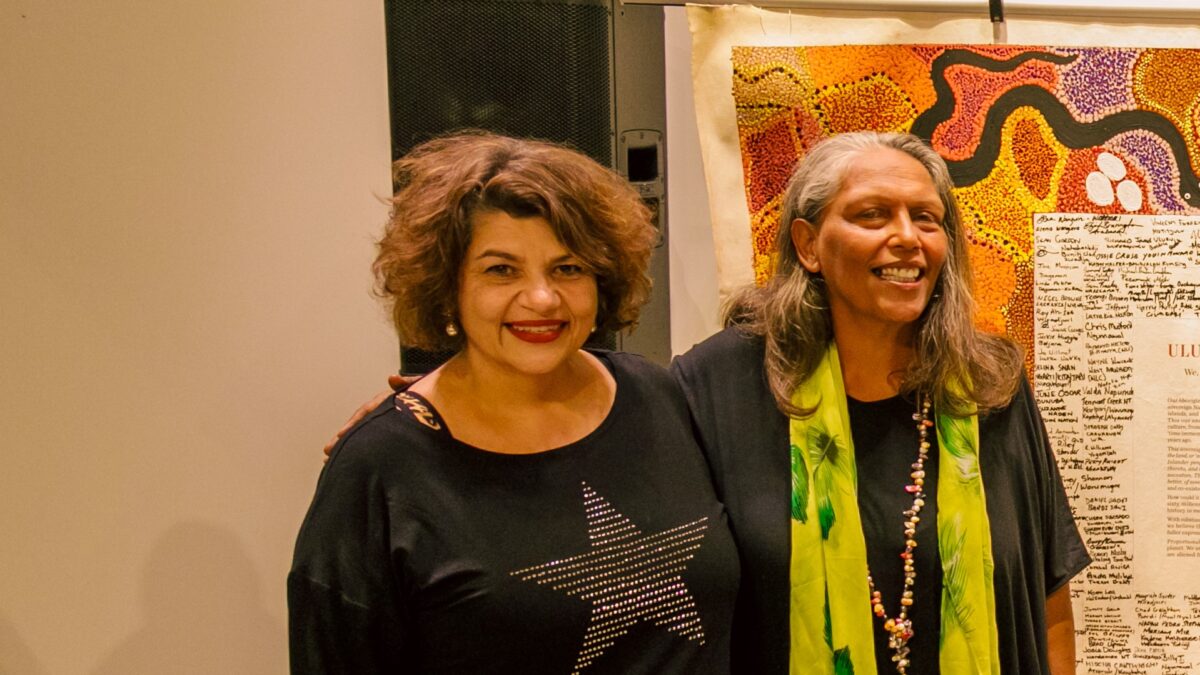Kirstie Parker: We want to talk to Aussies, not politicians about Voice


The Uluru Dialogue strategic adviser Kirstie Parker (left) says it's important that everyday Aussies read the Uluru Statement from the Heart for themselves. (Image Credit: Ben Fry / The Uluru Dialogue
A leading spokesperson for The Uluru Dialogue has emphasised that the First Nations community wants to be involved in a conversation with the Australian people about the proposed Voice to parliament in the lead up to the referendum, not politicians.
Kirstie Parker, appearing on the ABC’s Afternoon Briefing program on Friday, told host Matthew Doran that reaching out and connecting with everyday Australians was the most critical aspect of the “yes” side of the campaign, which could still have several more months to play out.
“I believe that all people who live in this country have a love for this country; that's the most important thing,” Ms Parker, a Yuwallarai woman living in Adelaide, and strategic adviser to The Uluru Dialogue, told Afternoon Briefing.
“I also understand that - and we know this from research - not every non-Indigenous Australian has met an Aboriginal and/or Torres Strait Islander person, and may not have a very deep or sophisticated understanding of the issues that confront us.
“So we do have a challenge ahead of us. We really are encouraging Australians to read The Uluru Statement from the Heart. It's 12 paragraphs, about 439 words which really speak of courage and dignity and hope.
“We talk about it as an overture to Australians. And that's a really important point. We don't want to be in conversations with politicians about this, we want to be in conversation with everyday Australians. And I know that many, many Australians do believe that we can do better.”
On the program, Ms Parker was queried about whether the just-released “yes” pamphlet, which will soon be sent out to everyone in the country, went far enough in explaining to everyday Australians about how the First Nations Voice to parliament will work once implemented.
“The document sends to Australians very clear messages about what the Voice is, how it will work, what it will mean for the nation, and the benefits of it,” she told Mr Doran.
“And it's really important that people also understand how the Voice came about. We've had a lot of misinformation throughout these discussions and suggestions that it comes from Canberra. And it does not. It comes from First Nations peoples around the country who gathered at Uluru in 2017 and were very clear about the aspirations they saw as a genuine way forward for a united Australia.”
“The Voice will be based on design principles that have been out since April. These came from the referendum working group, involving very senior, Aboriginal and Torres Strait Islander leaders who wanted to signal to Australia that these are the principles that underpin the Voice, that the Voice will be to provide advice to government in terms of laws and policies impacting our people.
“It will be from the ground up, it will be elected by Aboriginal and Torres Strait Islander people. It will be inclusive of genders, young people, older people, and so on.
“These are the sorts of things that Australians can take great comfort from. The Voice won't be a funding body, it won't run programs, and so on. So that's the level of detail that I think Australians are looking for. And it would be great if we brought those into the sunlight a bit more than they have been to date.”
Ms Parker said she believes genuine, decent Australians are wanting to see a turning of the dial on several areas of crisis currently affecting Indigenous people, such as kids in out of home care, adult prison rates, suicide and children’s education, which the Voice will address upon a successful referendum result.
“Many Australians might feel that this doesn't impact them. It actually does impact them when their country is great, the sort of country that we've often spoken about Australia being about - a fair and decent country where you help your mate,” she said.
“It's really important that people remember the basics. Changing the Constitution is about a principle and in this case, it is whether our people should have the dignity to be able to have a say on the things that affect us and the things that we have a deep understanding about.”
